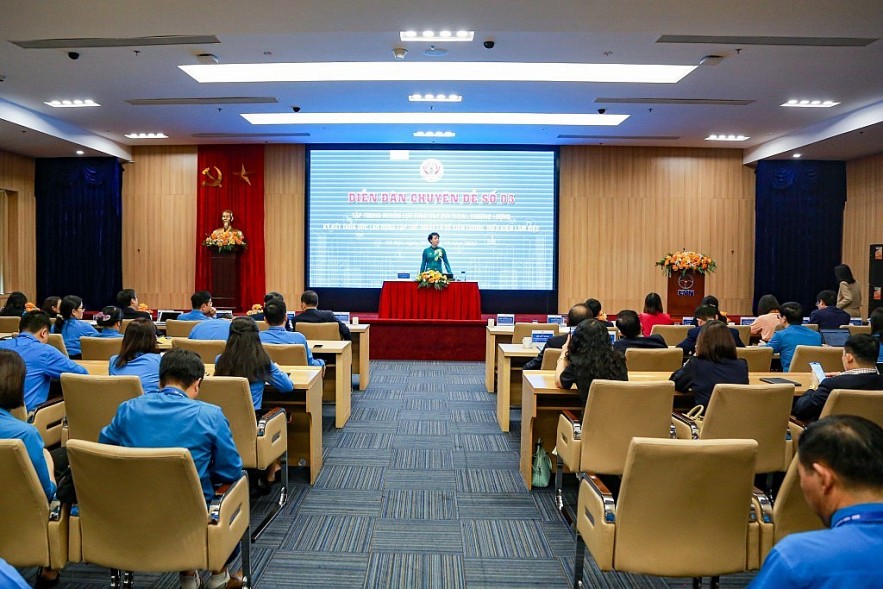During the 2018-2023 term, the Vietnam Trade Union has achieved remarkable results in its participation in dialogue and collective bargaining, according to Tran Thi Thanh Ha, head of the Labor Relations Department at the Vietnam General Confederation of Labor.
 |
| Tran Thi Thanh Ha, head of the Labor Relations Department at the Vietnam General Confederation of Labor, speaks at the forum. |
Specifically, more than 98% of state-owned enterprises and 64% of non-state enterprises have organized conferences for workers and other forms of democracy in accordance with the law. More than 99% of state-owned enterprises and 67% of non-state enterprises have trade unions that organize dialogue at the workplace. Negotiation and signing of collective labor agreements receive significant attention, especially in the non-state sector.
Despite the accomplishments, there are still shortcomings and limitations in the negotiation and signing of collective labor agreements, according to Tran Thi Thanh Ha. Additionally, in the upcoming 2023-2028 term, globalization and international integration are expected to continue to progress but are likely to face obstacles and present challenges for the Vietnam Trade Union.
During the forum, delegates also provided valuable assessments and suggestions regarding the future work of dialogue and collective bargaining for the Vietnam Trade Union. These suggestions include the need for the Trade Union to actively participate in tripartite dialogue mechanisms at all levels and effectively demonstrate its role as a representative organization for workers in the National Wage Council and the Labor Relations Committee. The Trade Union should also expand its coverage and enhance the quality of collective labor agreements, with particular emphasis on wages, income, and working conditions.




